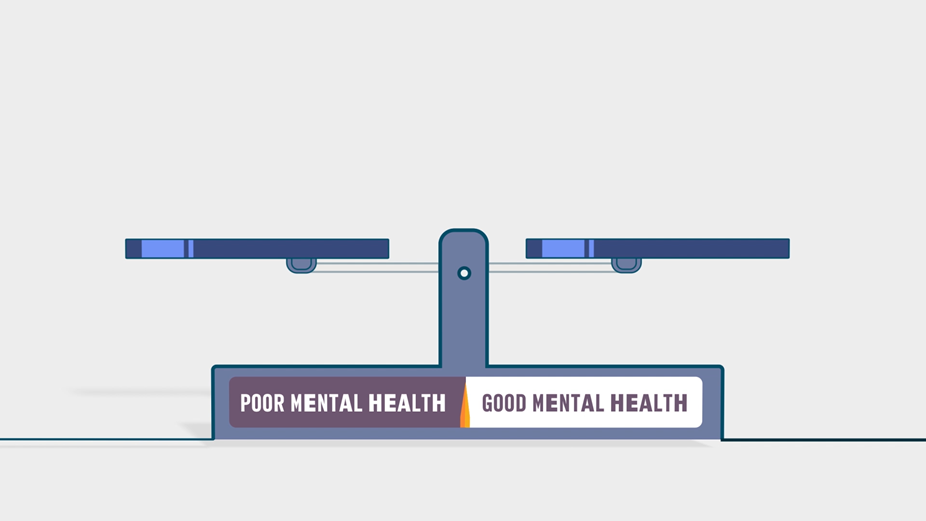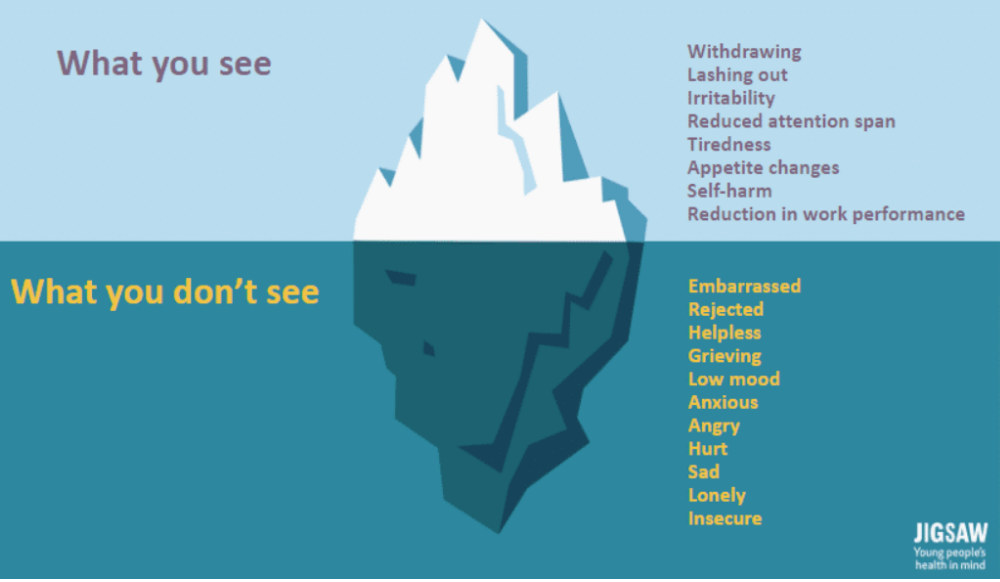One Good Manager
One Good Manager
Friday, 08 July 2022
Jigsaw’s One Good Manager is an initiative which supports the mental health of young people in the workplace.
We know from the My World Survey 2 that young people benefit greatly from having someone to be able to talk to. Having this person in their lives was linked to better overall mental health.
In this article we will learn:
- What is mental health?
- Supporting a colleague through a difficult time
- Signs of distress
- Minding your own mental health.

Resilience
Having good mental health is not about having no mental health problems.
What is mental health?
Mental health is something we all have. It includes our thoughts and feelings about ourselves and others; how we relate to other people, how we function day to day and how we cope with the ups and downs of life.
Having good mental health is not about having no mental health problems. It’s about feeling good enough about ourselves, being able to do the things that matter to us and having the resilience to deal with the difficult situations we all experience in life.
Supporting a colleague through a difficult time
Listening
For anyone that is going through a difficult time being heard is important. When someone knows that they are being listened to, they will be far more likely to be open about what is worrying them. Active listening techniques can help this process.
In the animation below you can see how you can engage in active listening by showing young people verbal and non-verbal signs:
Give people time
Give your colleague time and space. If you are distracted while talking to them, such as fidgeting or looking at something over their shoulder it gives the young person signals that you are not fully engaged.
If you are not in a position to listen attentively, it is better to organise a time when you can give them proper attention.
Don’t judge
Young people often feel judged by adults or fear that they will be judged by adults so they don’t tell us what it really going on in their lives.
Don’t jump to conclusions. Once you start jumping to conclusions you are no longer listening and rather than hearing the story from the young person you are making up the ending in our own minds.
Keep an open mind and allow your ears to really hear what is being said not what you think is being said or will be said, based on your past experience.

Tip of the iceberg
What you don’t see below the surface are the feelings that people might find hard to express.
Signs of distress
Recognising the signs that someone is experiencing mental health difficulties is a first step in supporting them. You might notice a change in their behaviour – they might have become more withdrawn, or start lashing out. Maybe they’re having trouble concentrating. Their appetite might have changed or they may be harming themselves.
These signs can often be the tip of the iceberg and what you don’t see below the surface are the feelings that they might be finding hard to express.
Don’t to rush to label a young person as angry or misbehaving or even as a moody teenager before considering the part of the iceberg that you can’t see and the possible underlying reason for their behaviour.
More tips
- Look for windows of opportunity: e.g. a quiet moment, when engaged in an activity
- Ask direct questions: e.g. are you OK?
- Comment on what you see: e.g. ‘I notice you haven’t been yourself lately’
- Be aware of body language: try to be relaxed and open – a gaping mouth, regular clock watching or looking uncomfortable won’t go unnoticed
- Ask how you can be of help: young people will want support at different times in different ways, so we should ask how we can help
- Encourage help seeking: sometimes people will need extra support. This might be through your companies EAP (employee assistance programme). In they are under 25 Jigsaw might be a good fit. A visit to their GP might also help.
Stress
Workplace stress is often cited as one of the most common stressors for adults.

Minding your own mental health
As a manager looking after your own mental health can come last on the long list of things to do. While this is understandable, it isn’t sustainable or useful in the long run. To be able to support the people around you, managers need to be in a good place themselves.
Workplace stress is often cited as one of the most common stressors for adults. Work doesn’t exist in a bubble – and often when we’re feeling down or under pressure, it’s not just one thing that is upsetting us – it’s a combination of things.
Give yourself a break
Acknowledge that being a manager, is not easy. If you are being the kind of manager you don’t want to be, take a step back. Focus on changes that could be made. Don’t beat yourself up.
Connect with others
Are there other colleagues that you can link in with? You may want to develop friendships that have nothing to do with your job. This can give you a break from your role as a parent.
The important thing is to reach out and connect with other people.
Look after your physical health
We all know that exercise, sleep and diet play significant roles in our well-being. However, it can be easy to slip into habits that interfere with our best laid plans.
Take some time to honestly review the weekly schedule. See where small improvements can be made. Be aware, slipping into bad habits with your eating, exercise or sleep routine can take a while to break.
Set yourself a realistic goal and give yourself time to implement changes.






